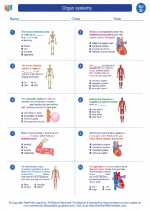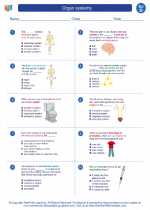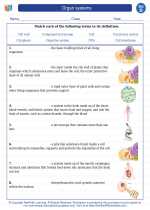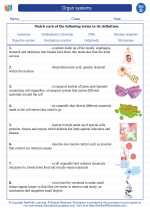Carbon
Carbon is a chemical element with the symbol C and atomic number 6. It is a non-metallic element and is the fourth most abundant element in the universe. Carbon is the building block of life and is found in all living organisms. It is also present in various forms in the Earth's crust and atmosphere.
Properties of Carbon
- Atomic Number: 6
- Atomic Weight: 12.01
- State at Room Temperature: Carbon can exist in different forms including graphite, diamond, and amorphous carbon.
- Chemical Reactivity: Carbon can form a wide variety of compounds due to its ability to bond with other carbon atoms and different elements.
Forms of Carbon
Carbon exists in several allotropic forms, the most common of which are:
- Diamond: Diamond is a form of carbon where the carbon atoms are arranged in a crystal lattice structure, making it the hardest known natural material.
- Graphite: Graphite is another form of carbon consisting of layers of carbon atoms arranged in a hexagonal lattice. It is a good conductor of electricity and is used in pencils and as a lubricant.
- Amorphous Carbon: This form of carbon has a disordered structure and includes materials like charcoal and soot.
Role of Carbon in Living Organisms
Carbon is a fundamental element in the molecules that make up living organisms. It forms the backbone of organic compounds, including carbohydrates, lipids, proteins, and nucleic acids. The carbon cycle is the process by which carbon is exchanged between living organisms, the atmosphere, and the Earth's crust.
Uses of Carbon
Carbon has numerous industrial applications, including its use in the production of steel, as a component of carbon fiber, and in the manufacturing of carbon black, which is used as a pigment and reinforcement in rubber products.
Study Guide
To study carbon effectively, consider the following topics:
- Understanding the structure and properties of carbon atoms.
- Exploring the different forms of carbon and their unique properties.
- Investigating the role of carbon in living organisms and the carbon cycle.
- Learning about the industrial applications of carbon and its importance in various industries.
By mastering these concepts, you will gain a comprehensive understanding of the significance of carbon in both natural and industrial processes.
.◂Science Worksheets and Study Guides Fourth Grade. Organ systems

 Worksheet/Answer key
Worksheet/Answer key
 Worksheet/Answer key
Worksheet/Answer key
 Worksheet/Answer key
Worksheet/Answer key
 Vocabulary/Answer key
Vocabulary/Answer key
 Vocabulary/Answer key
Vocabulary/Answer key
 Vocabulary/Answer key
Vocabulary/Answer key
 Vocabulary/Answer key
Vocabulary/Answer key
 Vocabulary/Answer key
Vocabulary/Answer key
